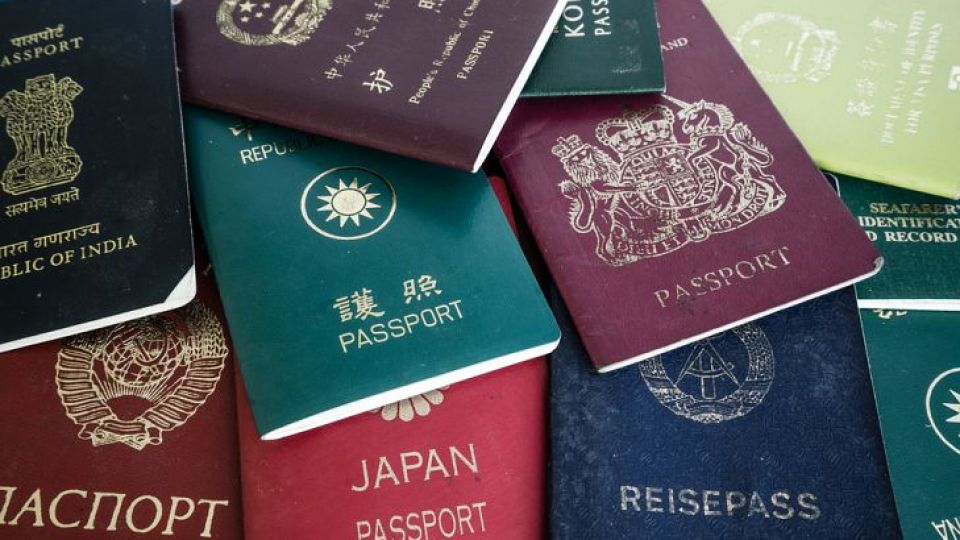June 7, 2018
Wealthy Asian nations are being counted among countries with world’s most powerful passports.
The passport power of Asian nations is on the rise.
Earlier this year, Japan topped a list of the most powerful passports in the world as its citizens have visa-free or visa-on-arrival access to 189 destinations. Two other Asian nations also made it to the top five slots in the Henley Passport Index’s 2018 global rankings. Finishing a close second was Singapore – another Asian giant – whose citizens enjoy similar travel facilities at 188 destinations. Singapore clinched the second spot along with Germany. South Korea claimed the third spot sharing the ranking with five European nations – Finland, France, Italy, Spain, and Sweden.
Traditionally Schengen area countries have topped this index as a result of their open access to Europe. However, developed Asian nations are giving these nations stiff competition.
“Developed Asian nations have been able to secure equally high scores in recent years thanks to their strong international trade and diplomatic relations,” Henley Passport Index has noted.
The Henley & Partners – Kochenov Quality of Nationality Index (QNI) ranks the quality of nationalities by exploring internal factors such as economic strength, human development and peace and stability, and external factors such as visa-free travel and the ability to settle and work abroad without cumbersome formalities.
Another country that has been steadily climbing this index is China. However, it is unlikely it will match the clout of say Japan or South Korea, even though it has gained access to 70 destinations.
The Henley Passport Index sources its data from the International Air Transport Association (IATA) and recently included eight new travel destinations. It surveyed a total of 199 different passports against 227 different travel destinations.
The UAE was reported as the fastest climber on the index. Currently placed in slot 23, it has climbed 38 places in 10 years, securing more new visa waivers for its citizens in 2018 than any other country in the world.
Rich nations, poor passports
By breaking down the value of nationality into four parts – freedom of travel, freedom of settlement, economic strength, and human development, the Index’s other surveys reveal that wealthy nations do not necessarily have the best passports.
The case in point – Canada and China are two of the world’s biggest economies with relatively weak passports.
Chinese passports are allowed visa-free or visa-on-arrival in only 70 destinations, while India, its economic rival, has performed worse – with access to only 50 destinations.
“These two countries even ranked well behind some of the world’s smallest economies, including Seychelles (142), Tonga (113), and, Micronesia (108),” said a report on the World Economic Forum.
Wealthy Middle Eastern countries such as Saudi Arabia also have little travel freedom.
Kochenov’s also factored in settlement freedom – the number of countries a citizen can work and live in with either no or little formalities – to compile the index.
China is among the countries with a score of zero for settlement freedom. Vietnam and Pakistan also score zero.
Asia’s steady rise in passport power
While the Japanese and Singaporean passports are the best travel documents to have today, some other nations are improving their global mobility.
Indonesia is making great strides in improving the global mobility of its citizens, who gained access to 13 additional destinations as it climbed 10 positions on the index.
“It is perhaps long overdue that wealthy Asian states such as Singapore and Japan would equal and now even exceed Germany’s ranking among the world’s most powerful passports,” Dr Parag Khanna, Senior Fellow at the Centre on Asia and Globalisation at the National University of Singapore, told Kochenov’s.
“These two states in particular are identified as peaceful commercial powers, with their citizens interested primarily in business and investment activities. For its part, Japan has long been one of the world’s leading capital exporters, and this role has grown in the wake of ‘Abenomics’, the set of economic policies implemented by Japanese Prime Minister Shinzō Abe at the outset of his second term.”
Singapore, which has long been the portal for investment into Southeast Asia, is now also the major conduit for outbound Asian investment.
“The most recent rankings also show promising gains for South Korea and Malaysia. South Korea has edged ahead of Australia and New Zealand, reflecting its pattern of international commercial prowess in the mould of Japan. Malaysia has gained ground on most EU members, with its businesses now reaching across Asia and Africa. We can certainly expect that in the coming years more Asian powers will use the combination of commercial expansionism and reciprocal entry policies to climb up the Henley Passport Index,” Khanna said.
Ease of travel to Asian nations
Meanwhile, Passport Index has ranked Cambodia as the most welcoming country in the world. Anyone with a passport can travel to Cambodia.
Passport Index, which collates data on various indices, took at look at which countries are easiest and most difficult to travel to based on their willingness to give visitors visas.
Here’s the ranking of some other Asian countries: Sri Lanka 13, Bangladesh 15, Indonesia 16, Laos 17, Malaysia and Singapore 18, Philippines 20, India 22, South Korea 37, Thailand 60, Japan 68, Brunei 70, Viet Nam 81, Mongolia 82, China 85, Pakistan 95 and Bhutan 97.


